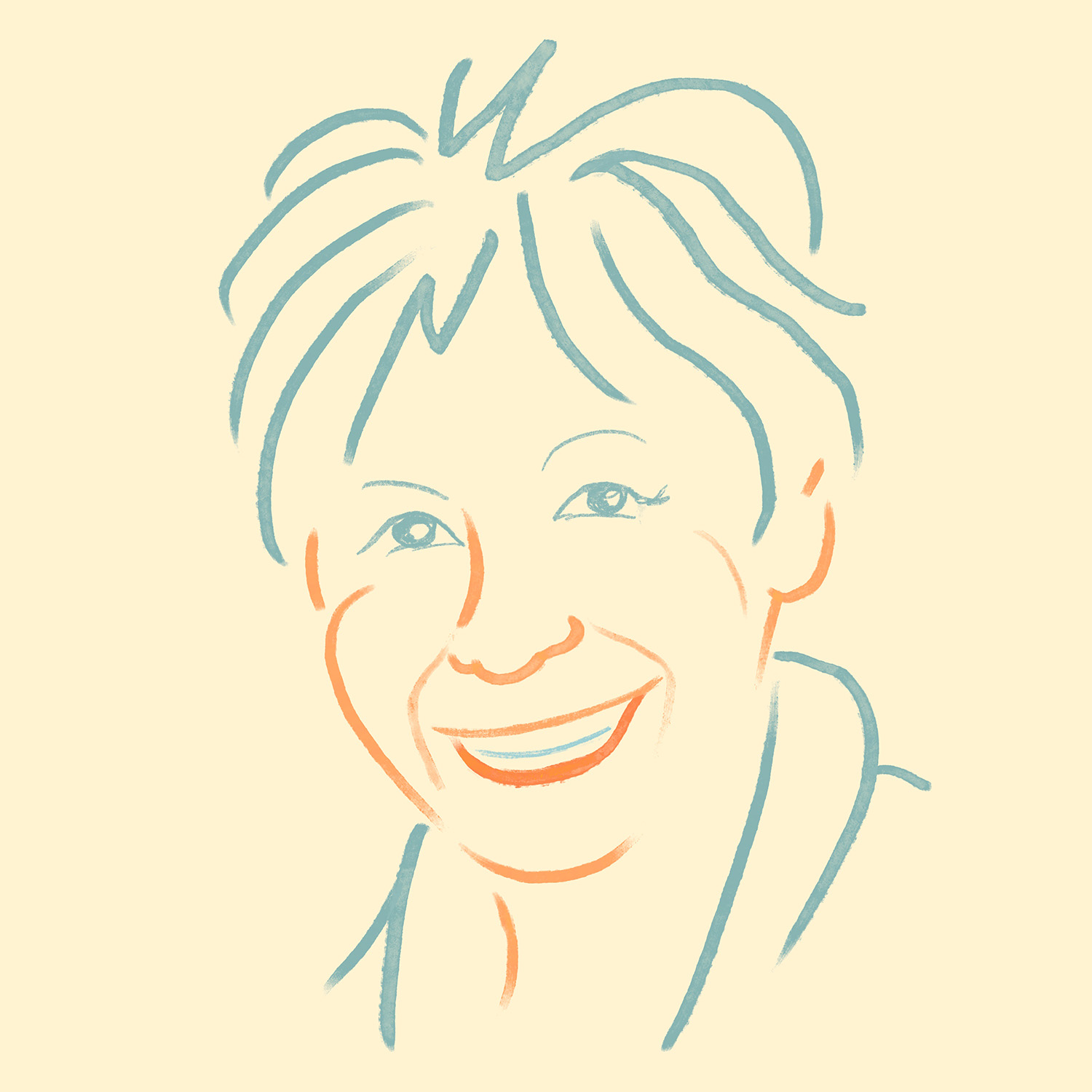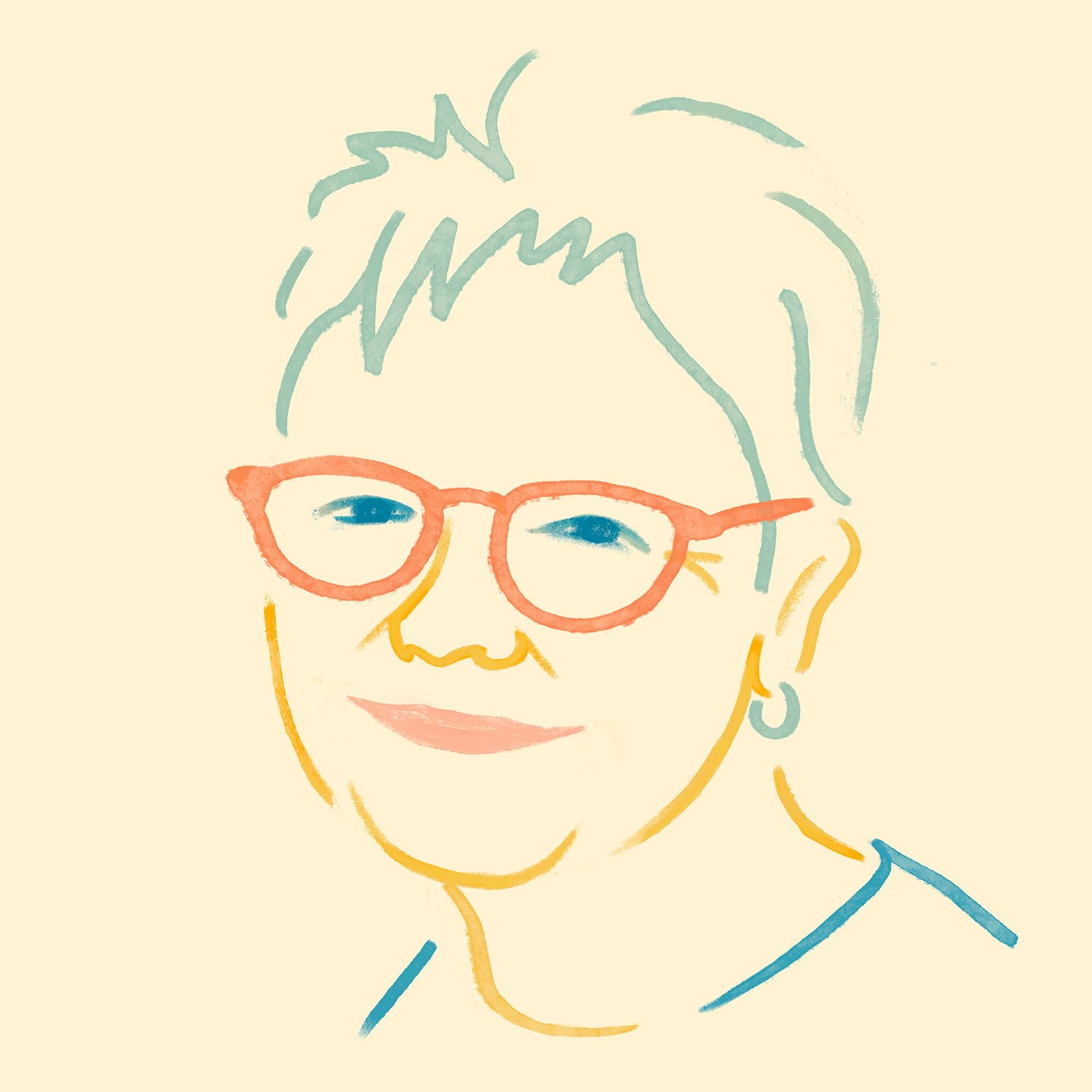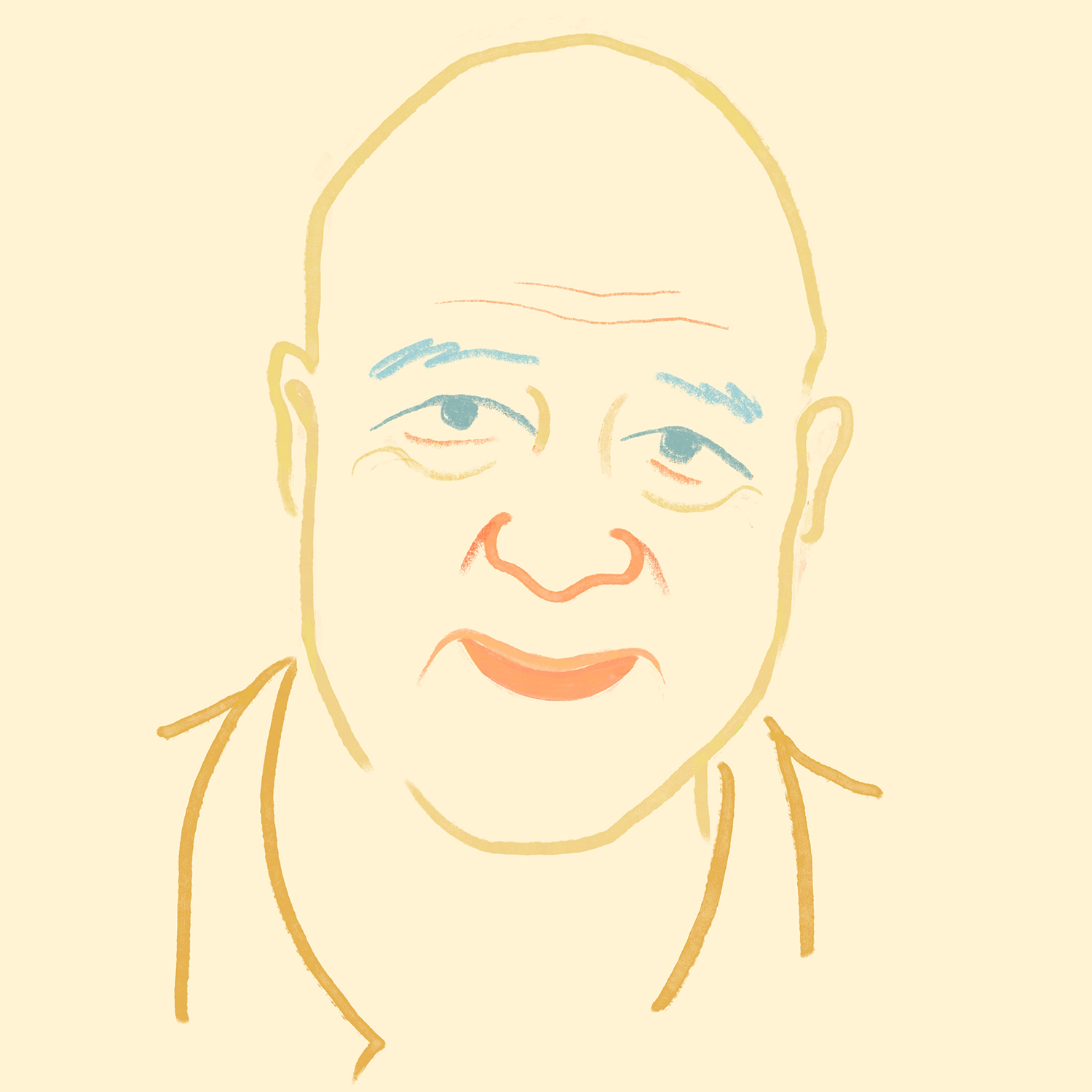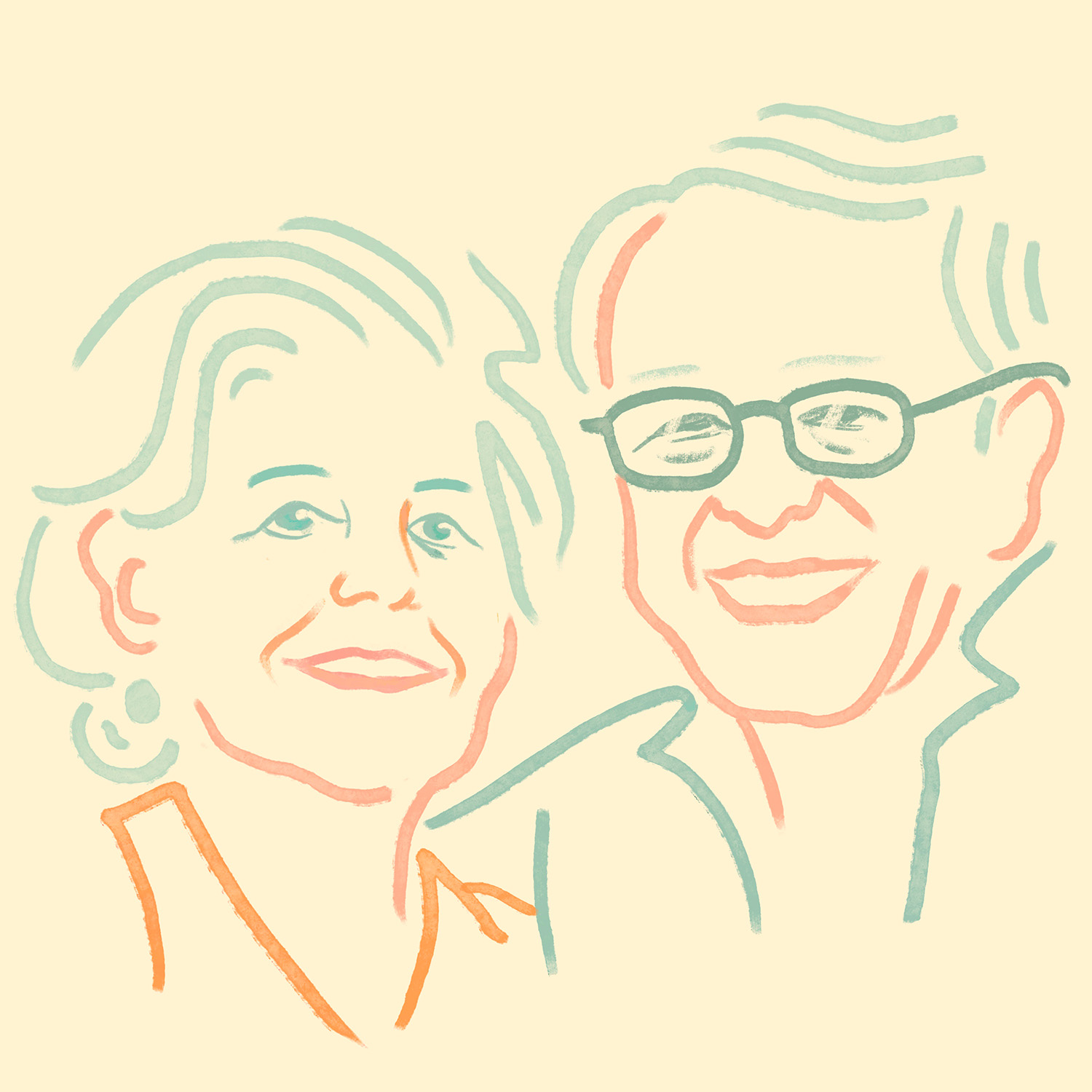Discover Learning through Experience
Learning through Experience

Learning through Experience
Author: Yale School of Management
Subscribed: 2Played: 12Subscribe
Share
© 2023
Description
How can we learn from the experience we have to create a future that we want? This is the realm that much of Dr. Heidi Brooks’s work explores. As we navigate through life, she invites us to cultivate the capacity to learn through experience, and to apply the wisdom gained to co-create a future that is worth fighting for.
In season one of the Learning through Experience Podcast, Dr. Heidi Brooks focused on one of the most impactful ways to learn through experience: learning with mentors. She spoke with some of her mentors and they reflected on what brought them to where they are today in their own work, life, and play.
But in a podcast that proposes that learning can not only happen through conventional exposure to concepts and theories but also through what we experience in life, this second season is all about the HOW.
How do we learn through our own experience?
Dr. Heidi Brooks talks to artists, authors, professors, and even yoga instructors about four practices you can lean on to learn through experience. These four practices are: How to challenge your perspective, how to stretch yourself and build range, how to direct your own learning, and finally, the importance of reflection.
I hope you follow along and join us for season two of Learning Through Experience.
In season one of the Learning through Experience Podcast, Dr. Heidi Brooks focused on one of the most impactful ways to learn through experience: learning with mentors. She spoke with some of her mentors and they reflected on what brought them to where they are today in their own work, life, and play.
But in a podcast that proposes that learning can not only happen through conventional exposure to concepts and theories but also through what we experience in life, this second season is all about the HOW.
How do we learn through our own experience?
Dr. Heidi Brooks talks to artists, authors, professors, and even yoga instructors about four practices you can lean on to learn through experience. These four practices are: How to challenge your perspective, how to stretch yourself and build range, how to direct your own learning, and finally, the importance of reflection.
I hope you follow along and join us for season two of Learning Through Experience.
16 Episodes
Reverse
This podcast season is all about the HOW of learning through experience. We learn through experience using four core practices: challenging your perspective, stretching and building range, directing your learning, reflection and inquiry. The core practice that we are paying attention to in this episode of Learning Through Experience is reflection and inquiry. In this episode, I spoke with reflective writing practitioner and teacher Stephanie Dunson about reflective practice through writing. We cover the practice of reflective writing, including the struggle of writing, and she offers some prompts for you to use in your own reflective writing practice. Stephanie is a renowned facilitator who uses writing as a tool for problem-solving and collaboration in both the academic and corporate worlds. Key Topics: 04:24 The challenge of writing: The limits of writing towards an outcome in contrast to writing for the reflection and exploration of our own thoughts and feelings; 08:33 The meander of writing: Writing doesn’t work in a straight line, rather it follows a natural sort of meander. By meandering through a piece, we get to know the writer’s mind; 15:18 Reflective writing: The concept of using writing as a tool for deep thinking and developing relationships with complex material; 21:15 Reflective writing in groups: Engaging in the moment of making new ideas as a group and combining the strengths of the individual with the power and diversity of the group; 23:03 The practice of writing: Developing the capacity to reflect, notice, and meander as a practice in life and writing; 30:48 Prompts for reflective writing: What have you considered writing about but abandoned? Explore the places of resistance and write into that space. Additional Resources from Stephanie Dunson Podcast: 100 Mistakes Academic Writers Make …and How to Fix Them Website
This season we've been taking on HOW to learn through experience which fundamentally challenges the brain-bound assumption that learning starts and stays in the brain. We aren't so great at honoring the wisdom, expertise, and leadership that emerges from lived experience, but our own life may guide us – especially if we tap into learning practices, like reflection and challenging our perspective. My guest on this episode is a shining example of widely acknowledged wisdom and leadership gained primarily through powerful life experience. You will hear how he came to take risks without the fear of failing, and a good dose of learning through reflection in the company of others. Erik Clemons is co-founder of the Connecticut Community Outreach and Revitalization Program (ConnCORP) designed to explore and implement opportunities for economic development and investment in New Haven. In all his work creating systems and community change, he has found that before any transformation of others takes place, you need to be personally transformed. Erik Clemons is a natural storyteller- and his story of transforming himself and creating transformation for and with others is a joy to experience. Key Topics: 03:49 Becoming through experience: Learning the world and teaching yourself – Erik’s story of learning and becoming through experience; 10:56 From mail handler to executive director: Knowing who you are and understanding who you want to be; 15:33 The Connecticut Center for Arts and Technology: How Erik’s lived experience equipped him to understand and serve his community; 18:47 Failure as part of learning: To be truly innovative and able to create change, you need to be willing to take risks; 20:22 Transforming a major artery in New Haven: Listening to community members to create service, beauty, and dignity in a community that deserved it; 27:02 Unconscious competence: Believing in your own capacity and using all of your lived experience to find a way; 29:10 Changing systems and supporting communities: We can’t transform community unless we are willing to be transformed by community; 36:04 The power of hope: Hope is what allows striving to happen. Additional Resources from Erik Podcast episode: Building Community Wealth and Power LinkedIn ConnCORP
Since this season of the podcast is all about the HOW of learning through experience, I wanted to talk to Annie Murphy Paul who basically wrote the book on learning outside the brain. She’s the author of several books, and I love to talk with people after they have had a chance to learn through the experience of their book being out in the world. In this episode, we focus on The Extended Mind: The Power of Thinking Outside the Brain. Her book challenges the perspective that brain-bound cognition is the best way to learn. There are so many great nuggets in this book and in this conversation with Annie. She adds quite a bit to the conversation about HOW to extend our learning capacity beyond the brain. The brain evolved for survival in a very different era to the one we live in today, and the tasks our brains evolved to solve are so different from the tasks we are expected to do now. To more fully utilize our learning potential, we can extend the mind by utilizing the body, physical spaces, relationships with other people, and material objects. Key Topics: 00:45 Challenging our perspective regarding social and emotional learning: As children, we are encouraged to learn from and through our environment. However, we are expected to put this kind of learning aside as we get older; 07:05 The limitations of the human brain: Understanding that the brain evolved for survival in a different era is crucial to changing the education system and preparing students for the modern world; 09:58 Bringing the body into learning: Moving the body to build range and enhance our cognitive abilities; 17:34 Restoring our attentional resources: We have a finite supply of attention, we can restore this by spending time in outdoor spaces; 24:41 Designing interior spaces to support effective thinking: We can use certain objects, symbols, and signs to extend our thinking, evoke a certain version of ourselves, and direct our learning; 33:34 Extending our thinking through experiencing people: Learning again as adults how to experience people around us as an individual and as a group. Additional Resources from Annie: Book: The Extended Mind: The Power of Thinking Outside the Brain by Annie Murphy Paul Website: anniemurphypaul.com Linkedin: Annie Murphy Paul
In this first episode of season two, I talk with Tracee Stanley about how to have an experience of yourself through skilled and intentional rest, self-inquiry, and aligned learning. This season is about how we learn through experience using 4 core practices: Challenging your perspective, stretching and building range, directing your learning, and reflection and inquiry. Tracee’s way of working is a deep way to learn through experience—listen to hear how our conversation touches on all four of these practices that might just change your life. Tracee Stanley, a yoga teacher and bestselling author who transitioned from a successful filmmaking career in Hollywood to teaching Yoga Nidra and self-inquiry, challenges conventional ideas surrounding work culture and productivity by emphasizing the need for balance, rest, and reflection so we can leave a greater legacy behind us. Key Topics: 01:24 Learning through experience to honor a less conventional path: From successful Hollywood filmmaker to yoga teacher; 08:03 Experience can offer a thread to yourself: There is a difference between knowing the self and coming into the self. Certain practices can help us peel back the layers of who we are not. 10:17 Experience opens a door: How the experience of rest practice opened new possibilities 16:30 Challenging your perspective: Understanding yourself, experimenting, and learning what you truly want; 19:11 Stretching and building range: Asking questions that allow you to learn through experience and make shifts towards what you want; 25:27 Directing your learning: Using intentional rest and the space of the liminal to capture what you already know; 28:45 Reflecting and inquiring: What legacy do we want to leave behind? How attachment, aversion, and fear are keeping us from intentionally resting and leaving a legacy of exhaustion behind us. 37:09 The group is more powerful than the individual: How community can help support you as you shift old patterns and learn through experience. Additional Resources from Tracee Stanley Practice: Grounding Deep Relaxation Website: https://www.traceestanley.com/ Books: The Luminous Self: Sacred Yogic Practices and Rituals to Remember Who You Are | Radiant Rest: Yoga Nidra for Deep Relaxation & Awakened Clarity
I’m Dr. Heidi Brooks. Last season of the podcast, Learning Through Experience, I focused on learning through the experience of mentorship and the guests were all my mentors in one way or another. In a podcast that lifts up that learning can not only happen through conventional exposure to concepts and theories but also through what we experience in life, the second season is all about the HOW. How do we learn through experience? I’m talking to artists, authors, professors, and even yoga instructors about four practices I decided to focus on in learning through experience. These four practices are: How to challenge your perspective, how to stretch yourself and build range, how to direct your own learning, and finally, the importance of reflection. I hope you follow along and join me for season two of Learning Through Experience.
Ok, Season 1 of Learning Through Experience is a wrap. (Woohoo!) I am learning a ton through the experience of podcasting- it’s much more fun and definitely more work than I expected! This short episode is a check-in. One of the core practices in learning through experience is reflection, so this short podcast episode is a check-in on my own learning through the experience of podcasting. It’s a way to share my learning in public, which feels slightly rebellious in a world that seems so committed to presenting finished products and hiding the human process. In this episode, I talk with a key partner and internal staff member Valerie Belanger about Season 1. We talk about what fun and ease and connection might look like in the podcast production process; learning in public, space-making and impact. Thanks for listening to the first season—just love your wonderful company and encouraging words. I hope you will stay subscribed and stay with me as we welcome new guests and topics in the next season, which is focused on the how we can learn through experience. Happy new year!
I love this episode with Rhona Weinstein! It’s about coming full circle, working for what you dream about and how all people exist in context. Part of that context can include the experience of inspiring mentorship. Read an automated transcript of this episode.
I have a very clear memory of chasing Robin Rose down the hallway at college and asking her: “How can I be like you when I grow up?” I was fascinated with the way she invited people to step into learning through personal experience. Since most of my idea of learning involved lectures and assignments, this approach was refreshing and evocative. Discovering the power of learning through reflection on experience was a fundamental shift for me—and I never turned back. In this conversation, we discuss learning laboratories, the need for risk, and how leadership is, at its core, an art form. Read an automated transcript of this episode.
Learning through experience is an everyday practice — as Bill Torbert knows well. In this episode, he speaks about the power of surrendering to the part of us that is quite a “numbskull.” Read an automated transcript of the episode.
In this episode, family systems experts Phil and Carolyn Cowan talk with grace and wisdom about their process of confronting aspects of family dynamics that they experienced but did not wish to pass on. If there’s one thing you take away from our conversation, let it be this: pay attention to your story. Read an automated transcript of this episode.
In order to learn through experience, our doing needs a good pairing with reflective inquiry into what’s working. Now that we’re halfway through the first season of “Learning through Experience,” I wanted to pause and take time to walk the talk. In this “check-in” episode, I share a bit of my reflection on what I am learning through the experience of podcasting. Read an automated transcript.
When I was coming out of my PhD studies, I was wandering in my own wilderness, trying to find my way. Wondering what else I could do besides clean my house to avoid my dissertation, I enrolled in the Coach Training Institute. And that’s how I met Karen Kimsey-House, who eventually became my personal coach, teacher, and dear friend. Karen helped me see how I could amplify the power of learning through the experience of my academic world filled with books, papers, and expertise. In this conversation, we discuss the power of reinvention, how to hear and heed your own truth, and the importance of creating spaces to craft understanding. Read an automated transcript of this episode.
In this episode, I spoke with Parker Palmer about the connection between teaching and learning, healing the heart of democracy, and following the path of integrity. I’ve been reading Parker J Palmer’s books for years. He's the author of 10 books about education, community leadership, spirituality, and social change. Three of these particularly resonated with my own experience: Let Your Life Speak, The Courage to Teach, and On the Brink of Everything: Grace, Gravity, and Getting Old. and one of them stood out as the scariest book I had ever read. Parker J. Palmer is also the founder and senior partner emeritus of the Center for Courage and Renewal. Key Topics: 03:33 The interplay of aging and vocation: How to keep learning through experience with the limitations that come with age; 09:38 The connection between teaching and learning: Teaching as an expert with relatively static knowledge versus teaching as a more dynamic process; 13:34 The community of truth: How we know what we know and the validity of our knowledge; 19:53 The scariest book I had ever read: Why this book resonated so deeply and prompted a perspective shift around leadership, epistemology, faithfulness, and effectiveness; 29:12 Putting wheels on ideas: Creating a vehicle that will allow other people to ride an idea and reshape it as they go toward destinations of their own choosing; 35:43 Following the path of integrity: Despite our greatest ambitions and clear intentions to live a life of virtue aligned with our values, it can be hard in practice. Additional Resources from Parker Website Facebook
Not everything we learn in college comes from the classroom. When you think about learning and insights that have mattered most to you, you may find that the most powerful associations include people, events, feelings and places. Barbara Tannenbaum and her living room came easily to mind for me when thinking about when and where I learned through experience. Barbara taught one of the most popular courses on campus. So why the living room image? Barbara would invite some students into her home for gathering circles in her living room — and I feel lucky to have been one of them. Her living room — outside the walls of my college classrooms — is an important marker in my ongoing learning journey. I love how we all have the chance to learn outside the classroom (because that’s most of life). In this episode, we discuss power talk, removing linguistic anchors, and why when we have more voice, we welcome more beauty. Read an automated transcript of this episode.
We are overloaded with so much information that we become full of ideas but too often lack the time to reflect, practice, and enact wisely. Ideas are not enough—we cannot run life by syllabus and read our way through—we have to learn our way through much of the experience of life, and integrate information as sensemaking to help us get better as we go. I’m Dr. Heidi Brooks, host of Learning Through Experience. I believe that we could upgrade life and face an unknown future with more confidence if we had the capacity to learn our way through experience. So I want this podcast to offer some ways to learn our way forward. Given the podcast format, it might be challenging - I can't simply tell you what learning through experience is, I want to show you, to offer you an experience. I am certainly doing that myself as I learn through experience how to podcast on this topic. I am hopeful that we will experience it together. In this first season, we looked at the experience of mentorship, an experience based on relationship. This was a set of conversations with the people who mentored me (oh so long ago!) with an eye to this question: How do we apply what we learn through experience with mentors? Key Topics: 00:00 The WHY behind the podcast: Why do we need to learn from experience? Why experience in itself isn’t enough? 05:51 Learning through the experience of teaching: Discovering what people are hungry for through one of my first experiences as a teacher at Yale. 07:42 The paradox of Learning Through Experience: These episodes aren’t about teaching, they’re about experiencing something together, reflecting, noticing what resonates, and learning from within. Read an automated transcript of this episode.
I love how art can take us on a journey to another way of seeing things. And, I don’t think I’m alone in thinking that the human condition is a little rough and rocky these days — so I feel drawn to opportunities to cultivate joy. In my role as Chair of the Art Committee at Yale School of Management, I have the chance to impact the space through the iconography on the walls. I wanted to do something real and uplifting. Then I met Clara Nartey and experienced her work. I am delighted to welcome her to this podcast so others can hear about her perspective and process. In this episode, we speak about art as a reflective practice, the impact of art on education, and the power of art to encourage discussion and change minds. Clara encourages us to explore art as a means of reflection and a way to navigate difficult topics and conversations that we may have otherwise avoided. The Joy of Living Exhibit at the Yale School of Management is a permanent exhibit by artist Clara Nartey. Clara is a textile artist and former management consultant, her exhibit at Yale is a reflection of her experience of the pandemic, and it has become a part of the context and fabric of the experience of this building. Key Topics: 04:10 Finding your way through experience: Challenging our perspective around difficult experiences and allowing them to become learning opportunities that lead us to courageous leaps. 10:02 The journey of becoming an artist: Learning through and from opportunities as they come to you in life, stretching and building range from them. 14:50 Creativity and self-reflection during the pandemic: Reflecting on what life means and creating art and joy from that place of reflection. 17:25 Art as a reflective practice: Being in a relationship with the creative process, directing your learning, and letting the work speak to you and evolve. 19:19 The power of art to change minds: There is a stretching of mind, heart, and spirit that happens through perceiving human issues through the arts. Learn more: See Clara Nartey’s Collections on her website. Listen to Clara discuss the works in the exhibit.



















